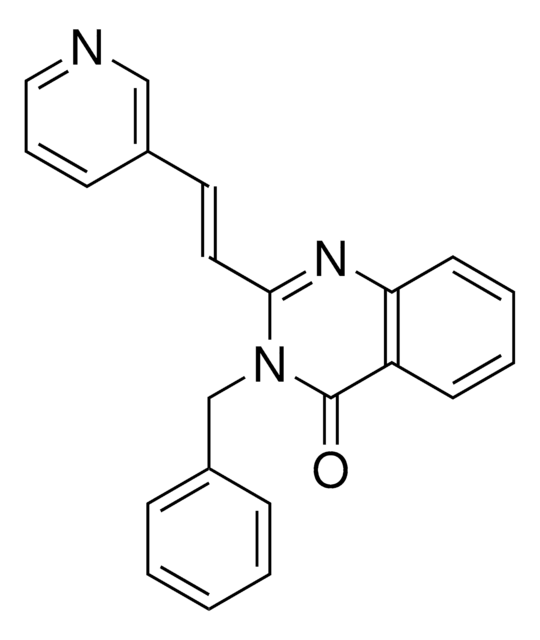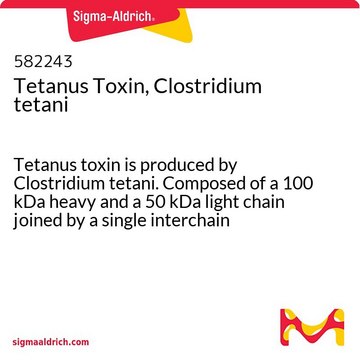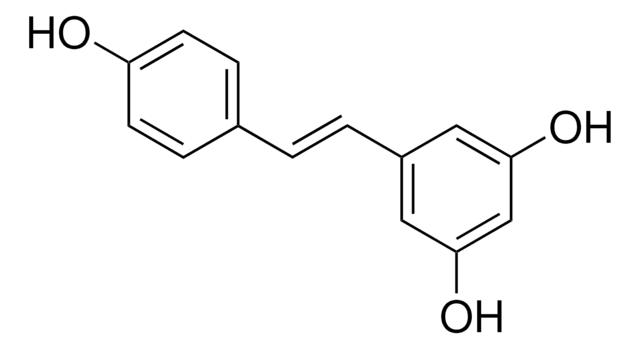SML1154
Clostridium difficile Toxin A
≥95% (SDS-PAGE), lyophilized powder, cellular toxin
Sinónimos:
TcdA
About This Item
Productos recomendados
product name
Clostridium difficile Toxin A, ≥95% (SDS-PAGE)
Nivel de calidad
Análisis
≥95% (SDS-PAGE)
formulario
lyophilized powder
temp. de almacenamiento
2-8°C
¿Está buscando productos similares? Visita Guía de comparación de productos
Descripción general
Acciones bioquímicas o fisiológicas
Reconstitución
Contents of the 2UG sku when reconstituted in 250 μL sterile distilled water will contain Toxin A at a concentration of approximately 8 μg/mL in 0.05M Hepes, 0.15M sodium chloride and 5% sucrose.
Otras notas
Mixing: Swirl or pipette gently to mix. Vortexing may promote aggregation.
Palabra de señalización
Danger
Frases de peligro
Consejos de prudencia
Clasificaciones de peligro
Acute Tox. 3 Oral - Acute Tox. 4 Dermal - Acute Tox. 4 Inhalation
Código de clase de almacenamiento
6.1C - Combustible acute toxic Cat.3 / toxic compounds or compounds which causing chronic effects
Clase de riesgo para el agua (WGK)
WGK 2
Punto de inflamabilidad (°F)
Not applicable
Punto de inflamabilidad (°C)
Not applicable
Certificados de análisis (COA)
Busque Certificados de análisis (COA) introduciendo el número de lote del producto. Los números de lote se encuentran en la etiqueta del producto después de las palabras «Lot» o «Batch»
¿Ya tiene este producto?
Encuentre la documentación para los productos que ha comprado recientemente en la Biblioteca de documentos.
Nuestro equipo de científicos tiene experiencia en todas las áreas de investigación: Ciencias de la vida, Ciencia de los materiales, Síntesis química, Cromatografía, Analítica y muchas otras.
Póngase en contacto con el Servicio técnico






